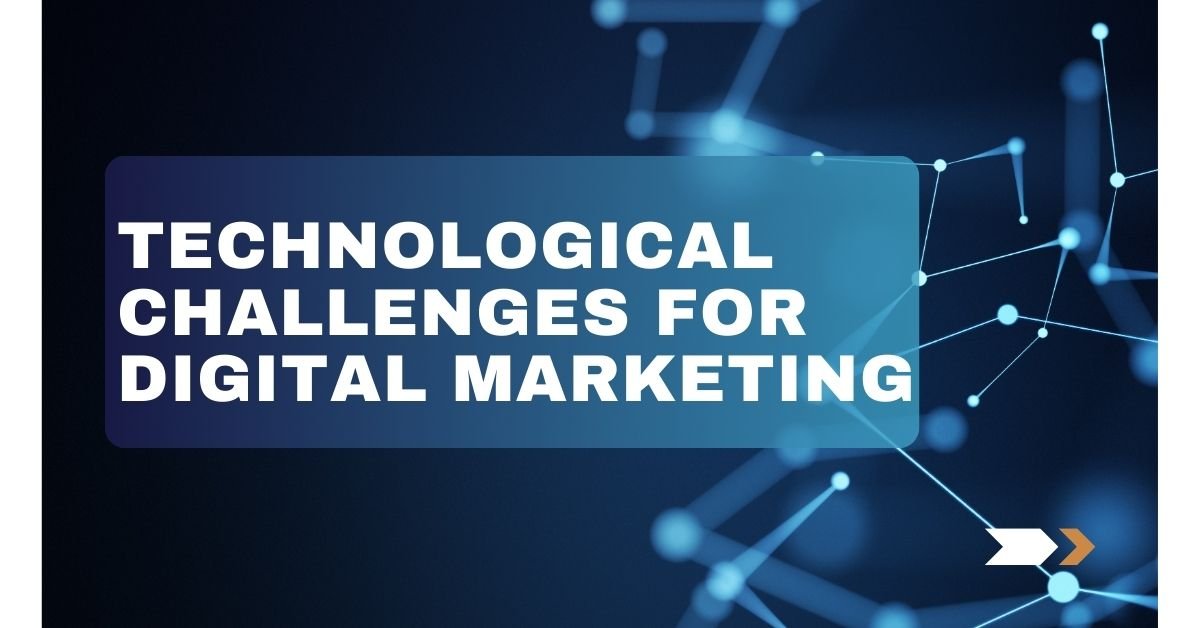
Find out how businesses are overcoming digital marketing technological challenges to thrive in an evolving and competitive digital world.
Introduction
So, as technology expands faster than before digital marketing also changes. As technology progresses faster than it ever has, the world of digital marketing is changing just as quickly.
Technology is rapidly changing so Digital Marketing and leading change due to that. Digital marketing, on the other hand, is a field that adapts to newer tech as it grows. The digital marketing world is changing faster than it ever has and technology evolving at a warp speed.
Because of the rapid advancement of technology, Digital marketing is such a volatile industry. And with the speed at which technology moving, digital marketing is also changing faster. The digital marketing field is changing just as fast, if not faster than the technology itself.
In addition to the above, digital marketing is a fast-evolving field as technology grows. In a fast-paced era, where the tech changes with a blinking eye- The digital market is not an exception. While the technology is moving so fast, digital marketing does too. The world of digital marketing is growing faster than the speed technology changes.
The Role of Technology in Digital Marketing
Evolution of Digital Marketing
Disconnected from the new millennium original pay-per-click marketing and email blasting, digital marketing has advanced significantly. trends and tools so they can continue following the path.
The third? Digital marketing has come a long way since banner ads and email campaigns. This means digital marketers have to adapt quickly by keeping up with new trends and tools in the industry.
Digital marketing has evolved a long way from its modest beginnings of straightforward banner ads and simple email campaigns. That means — if you are a digital marketer, you have to be on top of your game and keep up with the current trends. Therefore, digital marketers have to keep up with the times by adopting new trends and instruments.
Thus, it becomes essential for digital marketers to evolve with modern trends and tools. Digital marketing has evolved much beyond the primitive banner ads and email campaigns of yore. Therefore, digital marketers need to be a step ahead by adapting to changing trends and new tools.
Digital marketing has evolved a lot from the initial times of simple banner ads and email campaigns. It falls to digital marketers, therefore, to keep abreast of the trends and tools that are hot at any given time.
Digital marketing has come
Importance of Technological Adaptation
In this day and age, it takes more than a solid marketing plan to get in front of your target market. This means adjusting to new technologies and leveraging them. Covering everything from personalizing the customer journey using AI, to mobile-actionable websites. It involves… *Being proficient in learning new technology & using it to maximum benefit.
And a good marketing strategy isn’t enough in what’s more of a digital-first world, today. One that demands an insight as to how new technologies can both supplement and support the urban experience. This might mean leveraging AI to personalize customer experiences or it could require mobility-friendly websites using responsive website design.
It involves adeptness in new technologies and tech concepts. Start by employing AI to personalize customer experience, down through mobile-friendly websites. A thing that needs to be apt in learning new technology and utilizing it efficiently.
In today’s digital-first world, a robust marketing strategy is not enough to stay competitive. New technology — one that also requires us to understand how we should use it and when is appropriate. This might rely on leveraging AI to tailor customer experiences or developing mobile-first sites with responsive website design.
Key Technological Challenges in Digital Marketing
The Rise of Artificial Intelligence and Automation
But these same technologies also pose problems in the hands of savvy marketers. These deals help creatives run the most relevant campaigns for each user. From simplifying your customer service workflow to managing email and social media, automation tools make it easy!
Yet, these technologies are not without their challenges for marketers to navigate. So, this way they can do better-targeted marketing to users. Marketing automation solutions simplify different areas of marketing like email campaigns, social media management, and customer segmentation. But these technologies also come with hurdles that marketers need to overcome.
This, in turn, enables more personalized marketing campaigns that speak to the needs and wants of individual users. But certainly, these technologies come with their own set of problems that the marketers have to solve. Using AI, marketers predict consumer behavior and preferences by collecting tons of data. The result is a more hyper-targeted marketing campaign which
Data Privacy and Security Concerns
As digital marketing becomes more data-driven, concerns about data privacy and security have grown. Digital marketers must ensure compliance with these regulations to avoid hefty fines and damage to their reputations.
Marketers must be transparent about their data practices and prioritize security to protect consumer information. This involves implementing robust measures and regularly reviewing data handling processes to identify potential.
The Complexity of Omnichannel Marketing
Consumers today interact with brands across multiple channels, from social media and email to websites and physical stores. To deliver a true omnichannel experience, businesses must integrate their marketing efforts across different channels. This requires a unified approach to data collection, customer segmentation, and messaging. However, coordinating these efforts can be complex, especially for larger organizations with multiple teams and departments involved in marketing.
Personalizing the customer experience across multiple channels is another challenge in omnichannel marketing. Achieving this level of personalization requires advanced data analytics and a deep understanding of customer behavior.

1 thought on “Adapting to Technological Challenges for digital Marketing”